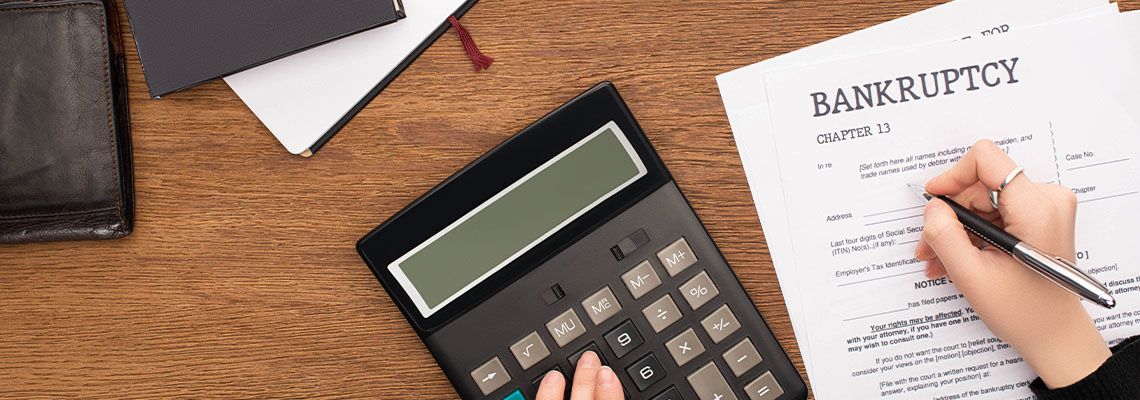
How Long Does Bankruptcy Appear on a Credit Report?
If you’ve been struggling with mounting debt, you know first-hand what a toll this can take on you. However, there are options available to you and one road to addressing your financial problems is to declare bankruptcy. No doubt this is an extremely hard decision to come to, but in many cases, it’s the right choice to make to get yourself back on track. And, when thinking about the future, one extremely common question people have during this time is, “How long does a bankruptcy stay on my credit report?”
While bankruptcy will stay on your credit report for some years, there are things you can do in the meantime to start rebuilding your credit. To learn more about this and to sit down with an experienced bankruptcy attorney, call The Law Offices of Marc G. Alster. Mr. Alster works out of Hackensack, New Jersey, and can serve those throughout northern and central New Jersey counties including Bergen, Passaic, Hudson, Essex, and Union, as well as counties in New York such as Rockland County, Westchester County, Orange County, and Putnam County. Get in touch for professional services today.
Chapter 7 Bankruptcy
Chapter 7 bankruptcy is the most common type for individuals. This type of bankruptcy requires the individual to liquidate (sell off) any non-exempt assets and use these funds to pay back any past-due debt before a judge will sign off on discharging any remaining debt. Because of this, it’s often referred to as “liquidation bankruptcy.”
You also must meet certain income requirements to file for Chapter 7. Typically, your gross monthly income must be less than the median income for a household of the same size in your state. It should be said, however, that the vast majority of people are able to keep most if not all of their assets and are not required to liquidate them.
A Chapter 7 filing will stay on your credit report for 10 years.
Chapter 13 Bankruptcy
Chapter 13 bankruptcy is the other common choice for individuals and is commonly called the “wage earners” plan since it’s ideal for those who make above the income limits for filing Chapter 7. With a Chapter 13 filing, the individual does not have to liquidate any of their assets and instead develops a repayment plan that encompasses all their outstanding debt and consolidates it into one monthly payment. This payment plan must be followed for three to five years at the end of which time any remaining dischargeable debt will be erased.
A Chapter 13 filing stays on your credit report for seven years.
How Much Does a Bankruptcy Affect My Credit Score?
Undoubtedly, bankruptcy negatively affects your credit score which in turn can seriously limit your ability to establish new credit or take out new loans. However, it will immediately eliminate any delinquent accounts reports. You can expect to lose somewhere between 130 and 240 points off your credit score once you file. Furthermore, anytime your credit is checked, they will see that you recently declared bankruptcy. That said, bankruptcy’s effect on credit score can be mitigated and there are several steps you can take to help you rebuild credit and increase your credit score.
What Can You Do to Help?
Work with a reputable attorney: The best thing you can do right from the start is work with a skilled bankruptcy attorney. They can help you organize your finances before you declare so you’ll be better prepared for rebuilding afterward. They can also advise on your best options and help set you on the right path to remain debt free.
Start rebuilding credit: Even though most traditional lines of credit won’t be available to you immediately after you file bankruptcy, there are other options to start rebuilding credit right away. One option is to get a secured credit card. These function like a regular credit card, except the funds are drawn from a deposit you make initially. For example, you may place $500 onto a secured credit card and then use that card to make purchases up to the amount you deposited.
Double-check your credit report: Immediately after your filing has been accepted, check to make sure that only applicable accounts were reported and that any debt that was supposed to be discharged is no longer showing up on your report.
Follow up at the end of your repayment plan: If you filed for Chapter 13 bankruptcy, you’ll want to run a credit report for yourself at the end of your repayment plan to ensure that payments were attributed to the correct accounts and that your dischargeable debt was accounted for.
Dependable Legal Assistance
If you’re in the Hackensack, New Jersey, area and are considering filing for bankruptcy but want to learn more about what to expect out of the process and how it will affect your credit report, reach out to The Law Offices of Marc G. Alster.
